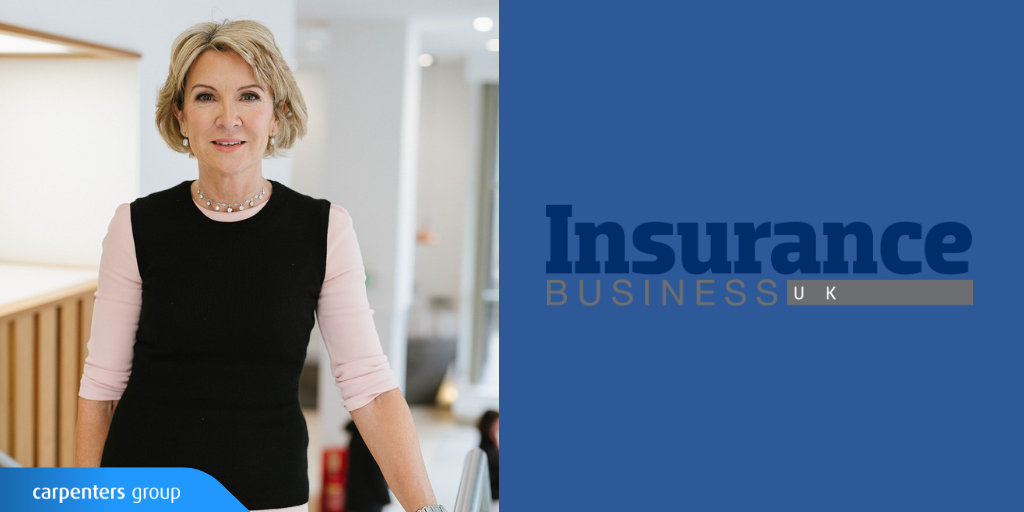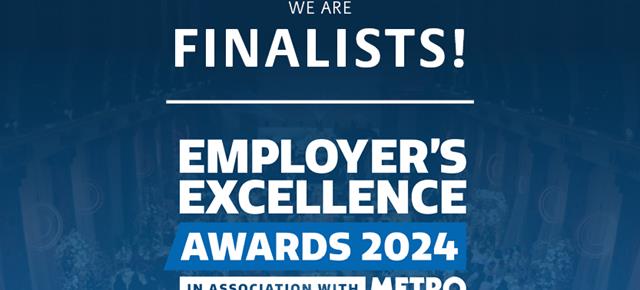Donna Scully on what it takes to achieve gender pay parity
09 August 2022
4 minute read

Our Director, Donna Scully, recently spoke to Insurance Business UK about what it takes to achieve gender parity.
A common hazard of high-level thought leadership on diversity and inclusion initiatives, such as bridging the gender pay gap or creating more inclusive work environments, is that they risk overlooking the individuals behind the narrative.
And so it was with keeping the people behind the data in mind that Carpenters Group recently unveiled its ‘Gender Pay Gap Report 2021’ which placed its mean gender pay gap in 2021 at 0.1% (compared to the 2021 UK national average of 7.4%). In addition, the firm achieved gender representation across all levels of its business – two particularly trend-bucking statistics revealing that women made up 55% of those paid the highest salaries, and a mean gender bonus gap of 15% in favour of women.
However, when discussing the report with Insurance Business UK, Carpenters’ director and co-owner Donna Scully (pictured) noted that while the statistics paint a clear picture of the group’s efforts, it’s the reaction the report received that tells the full story.
“I sent it to a few women I know who are about my age and their reaction was ‘thank God for that’,” she said. “And that really struck me because, with something like this, it’s not about saying it’s easy or anything like that, but rather about saying it can be done, everybody can do this. It gives people something to aim towards. I do some mentoring for young girls and I sent this to the people running that mentoring because it can give them hope that they count and there is a career path for them out there.”
Read more: Carpenters' Donna Scully on maintaining ethics while building a successful business
While achieving this level of gender parity may seem an insurmountable task for businesses less advanced in their journeys, it’s a journey that starts with a single step – creating the right culture. If your culture and your ideals are strong, she said, then it all flows from there. Going right back to the early days of the group, Scully noted that she and co-owner John Carpenter had a strong shared vision not just of what they wanted the firm to achieve but also of the way they wanted to achieve it – and it’s an ethics-first ethos that holds true to today.
Having that culture in place has naturally led to Carpenters’ gender balance due to the equitable working environment it has created, with every member of the team secure in the knowledge they were chosen as the best person for the job. The group is the model of a very positive female-led work environment, she said, but that has been achieved through the creation of a fair environment that recognises and rewards strengths and skills.
With that underlying culture of having an open mind in place, Scully said, two key factors have built on that strong foundation to create a work environment that allows everybody to thrive – flexibility and opportunity.
“I think, for us, bringing in flexible working, job share opportunities and part-time work was really groundbreaking,” she said. “Not surprisingly it was mostly taken up by women though, of course, that flexibility is offered to everybody.”
All too often, she said, women work their way up the ladder of a corporation only to find themselves back where they started after they go on maternity leave.
“Lots of our women over the last 20 years have gone off to have their families and come back,” Scully said. “But they haven’t gone back to the bottom of the pile but rather stayed where they should be and been considered at that same level when they’ve come back. It’s so important that women don’t miss out on promotions and the big jobs when they come up through a business just because they might have a family. Because, if they do, they’re not taking a break, they’re keeping the human race going!”
Looking back to when she joined her co-founder and husband 25 years ago, Scully’s frame of reference for creating the right services was what she needed and what she saw that the people around her needed. Flexibility was the number one factor, she said, and Carpenters embraced that very early on, even before they could really afford to do it.
“I felt that, as a woman, I have to understand,” she said. “And then three years into the business, I had my boys. And then you’re in the middle of it and you know what it’s like because you’re living it, and it’s tough!”
Now, years later, Scully can see the positive impact that this early decision is continuing to have on the Carpenters team and she’s proud of how many families the group has been able to support through its flexible approach to doing business. It’s not a given, she said, recalling how when she used to pick up her sons on a Friday, it struck her that the majority of the other mothers were stay-at-home parents.
“They were the generation that had tried it with their first or second child but found it was too much,” she said. “It was too hard without the support in place so these really great women just stepped out. This idea that you can have it all, they said they’d found out that you can’t. So, they’d decided to become full-time mums, which is great if it is what you want, and I admire anybody who can do that. But when you see women who want to work and can’t because there’s no support or flexibility, that’s just too tough.”
The other piece to the D&I puzzle is around providing opportunity for people, she said, and, from the outset, Carpenters dedicated significant resources to providing free in-house training and/or further education to its people. Both she and John Carpenter are passionate about increasing social mobility, and a key element of that is providing the right opportunities to people who couldn’t afford them at school or post-school.
“We were very pleasantly surprised at how many people took up the further education piece or the in-house training, and a lot of them were women,” she said. “So many men and women did and even though they have families and other [commitmments], they weren’t put off… You have to support your people financially as well, you can’t just give them the flexibility because, without the money, people can’t take those opportunities. If you want real social mobility across your business, you need to make those investments.”
High-level reports around the business case for D&I make for interesting reading but, again, Scully noted the value of real lived experience and examples in showcasing why it makes sense for a business to encourage all its people. Respecting, investing and caring for your people pays back tenfold, she said, because you can create and retain a superb team who are happy, fulfilled and loyal to your business.
“It’s by having an open mind, being flexible and providing further education and training that we’ve been able to support our people through their careers, through the cycle of having their families,” she said. “And that has been amazing to watch. And you can really see the loyalty and commitment of our team that’s come from that.
“We did an employee awards a few months ago, and so many people have been with us so long – lots with 15 or 20 years service, whole families as well. I did a speech for our ‘lifers’ and I asked, “How can we quantify that kind of loyalty? How do we deserve it and how do we thank you for spending so many years of your life with us?” We’re so thrilled by that kind of loyalty and just hope they feel it was earned.”
Credit: Insurance Business UK














